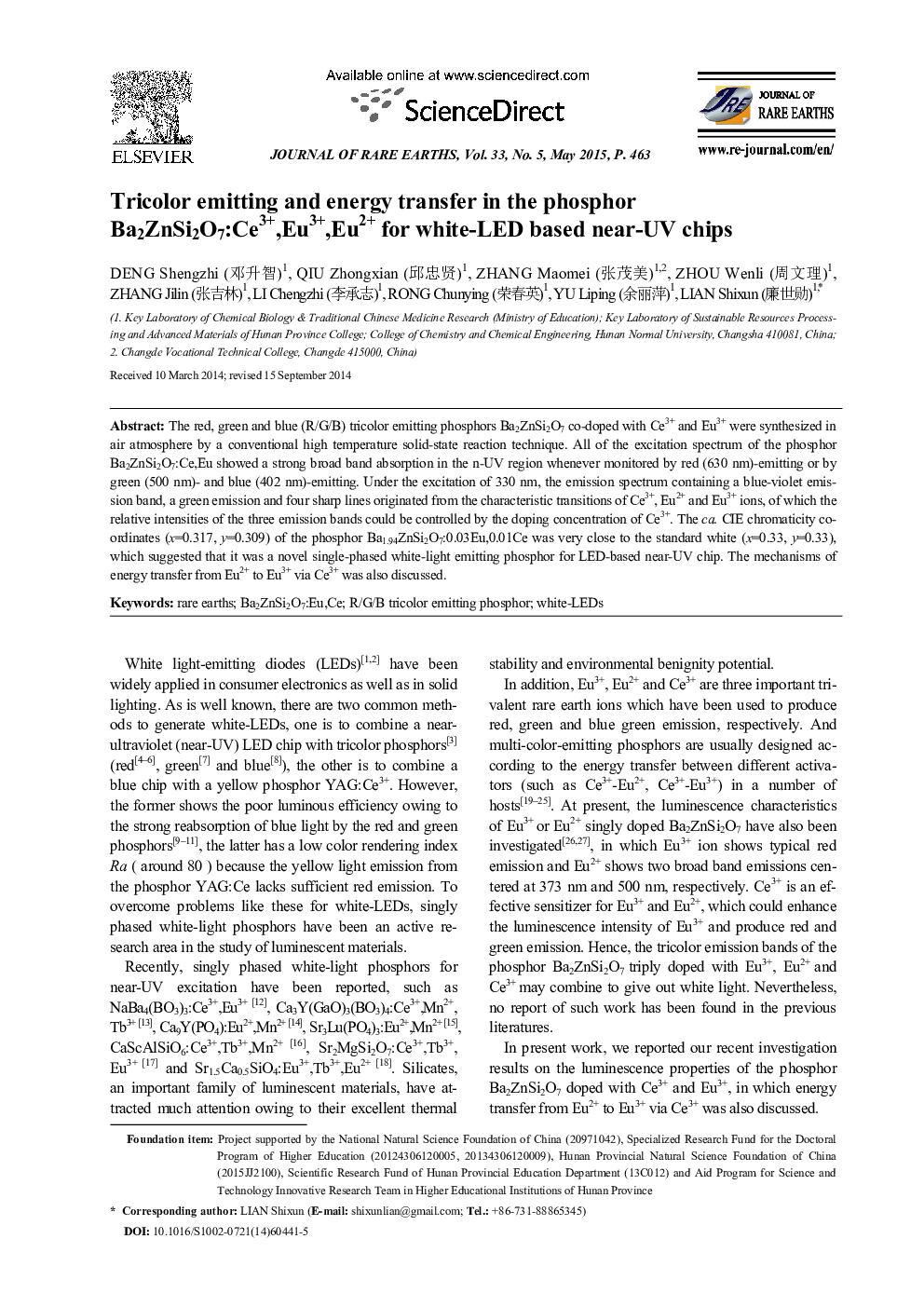| کد مقاله | کد نشریه | سال انتشار | مقاله انگلیسی | نسخه تمام متن |
|---|---|---|---|---|
| 1259032 | 971657 | 2015 | 6 صفحه PDF | دانلود رایگان |

The red, green and blue (R/G/B) tricolor emitting phosphors Ba2ZnSi2O7 co-doped with Ce3+ and Eu3+ were synthesized in air atmosphere by a conventional high temperature solid-state reaction technique. All of the excitation spectrum of the phosphor Ba2ZnSi2O7:Ce, Eu showed a strong broad band absorption in the n-UV region whenever monitored by red (630 nm)-emitting or by green (500 nm)- and blue (402 nm)-emitting. Under the excitation of 330 nm, the emission spectrum containing a blue-violet emission band, a green emission and four sharp lines originated from the characteristic transitions of Ce3+, Eu2+ and Eu3+ ions, of which the relative intensities of the three emission bands could be controlled by the doping concentration of Ce3+. The ca. CIE chromaticity coordinates (x=0.317, y=0.309) of the phosphor Ba1.94ZnSi2O7:0.03Eu,0.01Ce was very close to the standard white (x=0.33, y=0.33), which suggested that it was a novel single-phased white-light emitting phosphor for LED-based near-UV chip. The mechanisms of energy transfer from Eu2+ to Eu3+ via Ce3+ was also discussed.
The CIE chromaticity diagrams of Ba1.97-yZnSi2O7:0.03Eu,yCe phosphors excited by 330 nmFigure optionsDownload as PowerPoint slide
Journal: Journal of Rare Earths - Volume 33, Issue 5, May 2015, Pages 463–468